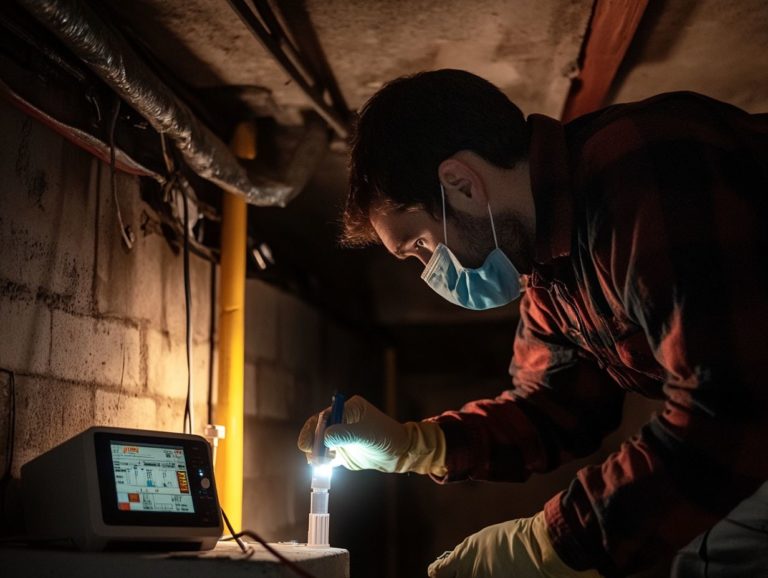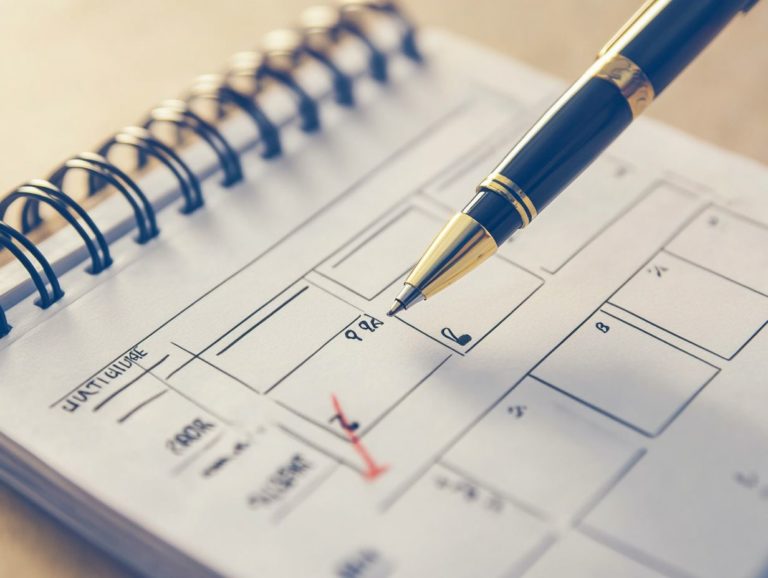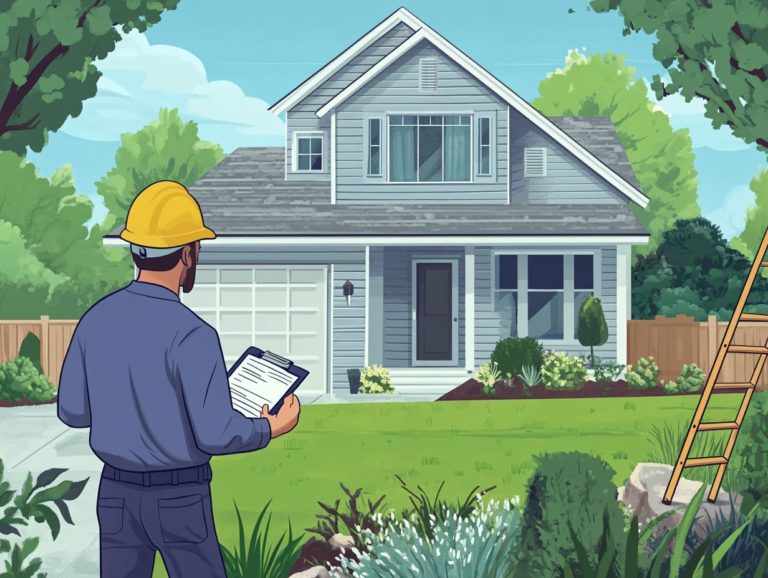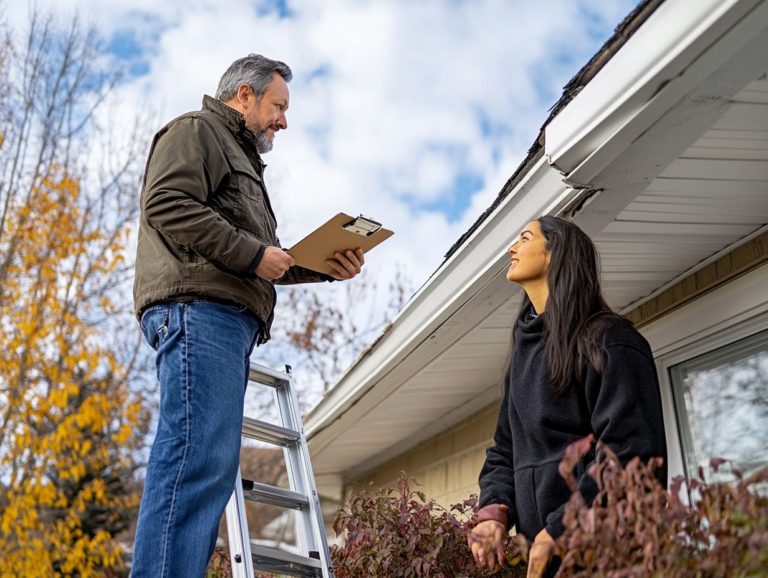How to Prepare for a Home Inspection: Best Practices
Buying a home stands as one of the most significant investments you’ll ever make. Conducting a thorough home inspection is an essential step in this journey. It not only uncovers potential issues but also provides you with invaluable peace of mind.
This guide delves into the importance of home inspections. It offers strategies on how to prepare for one and what to expect during the process. You’ll find insights on common problems to keep an eye out for, as well as tips for selecting a reliable home inspector.
Whether you are a first-time buyer or a seasoned homeowner, this guide equips you with the knowledge needed to navigate your home inspection journey with confidence.
Contents
Key Takeaways:
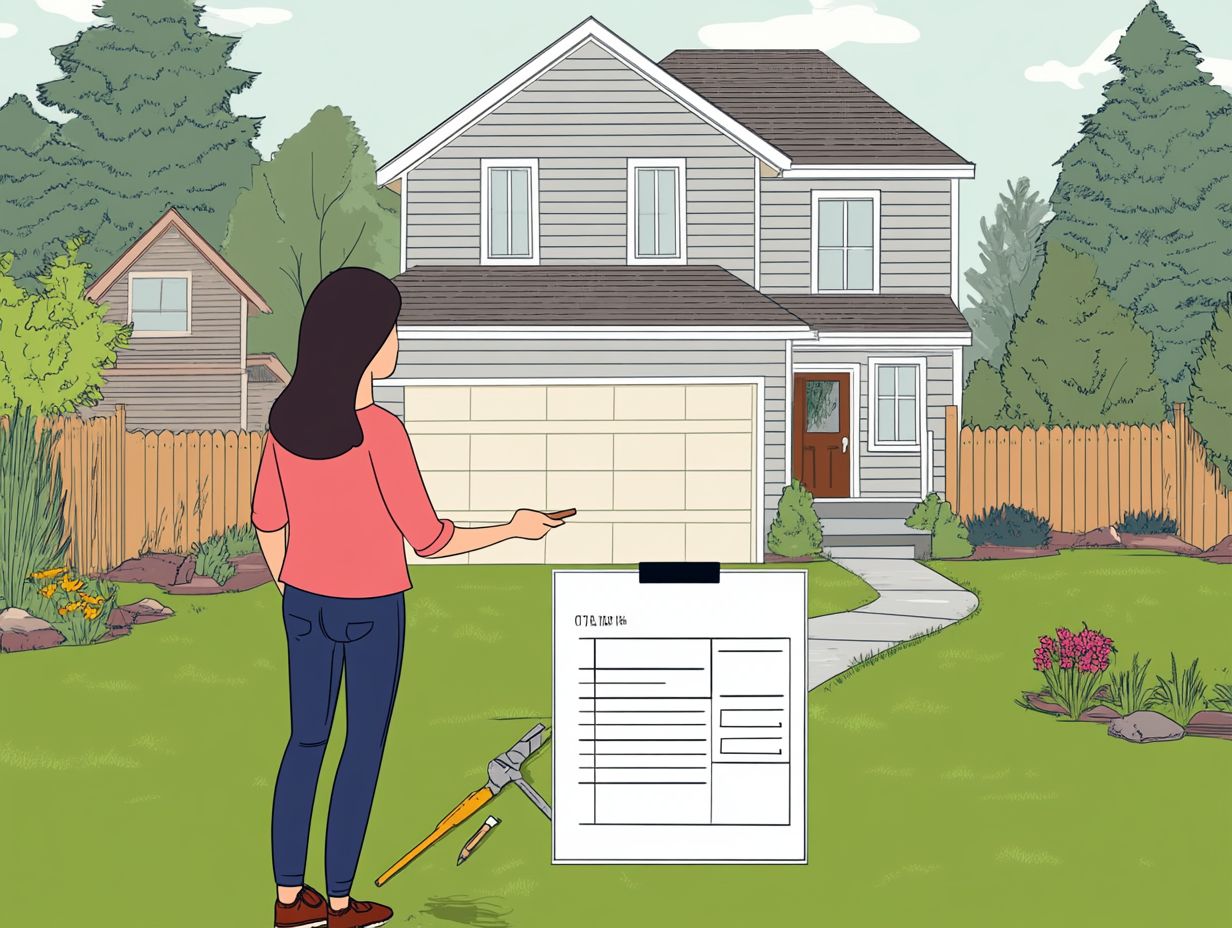
Home inspections are crucial for ensuring the safety and functionality of your home. Don t skip this vital step!
Before a home inspection, take time to declutter, clean, and make necessary repairs to showcase your home in the best light. For more comprehensive guidance, check out how to prepare for a home inspection. During the inspection, be prepared to ask questions and actively participate to gain a better understanding of your home’s condition.
Understanding the Importance of Home Inspections
Home inspections are an essential component of the real estate transaction process. They offer invaluable insights into a property’s condition for both buyers and sellers.
For you as a buyer, a comprehensive inspection empowers you to make informed decisions. It ensures you know exactly what you’re getting into.
On the flip side, if you are a seller, this transparency can be a game-changer. It illuminates any potential issues before they become negotiation stumbling blocks.
An inspection report not only highlights major repairs but also brings to light minor concerns that could influence your property’s value and marketability. By recognizing the significance of home inspections, you can approach the intricacies of the home sale process with heightened confidence and clarity.
Why Home Inspections are Necessary
Home inspections are essential for ensuring that a property meets safety standards and condition requirements for you as a prospective buyer.
These evaluations find serious problems and help you understand how well the home is maintained. Understanding the property’s condition empowers you to make informed decisions, negotiate repairs or price adjustments more effectively, and plan for future maintenance needs.
For sellers, showcasing a home that has undergone a detailed inspection can significantly boost buyer confidence and facilitate smoother transactions. Ultimately, these inspections play a crucial role in the real estate process, enhancing transparency and fostering a healthier market for everyone involved.
Pre-Inspection Preparation
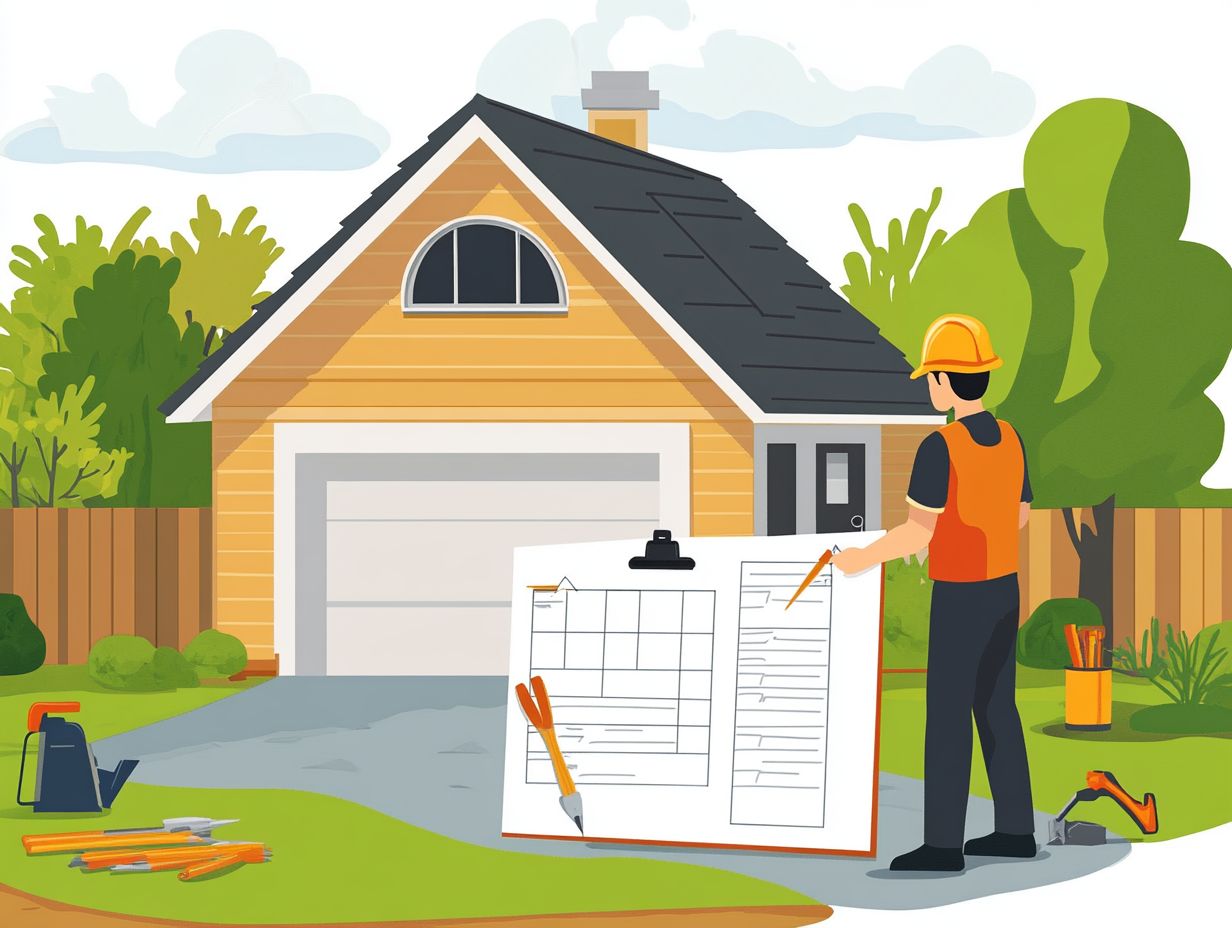
Preparing for a home inspection is an essential step that can greatly impact the outcome on inspection day, particularly for sellers eager to position their property advantageously in the market.
A pre-listing inspection can uncover any significant repairs needing attention. It also provides an opportunity to enhance the property through thorough cleaning and outdoor upkeep.
Utilizing an inspection checklist can streamline your preparation process. This allows you to showcase your home in its best light and ensures that all accessible areas, including HVAC (Heating, Ventilation, and Air Conditioning) and plumbing systems, receive a meticulous examination. For more detailed guidance, check out how to prepare for a successful home inspection.
Steps to Prepare for a Home Inspection
To prepare effectively for a home inspection, focus on enhancing the cleanliness and accessibility of your property. Additionally, you can learn how to prepare for a home inspection by ensuring that both major repairs and minor issues are addressed beforehand.
Start by decluttering each room. This creates an inviting atmosphere that allows inspectors to navigate freely. A thorough cleaning regimen—think dusting, vacuuming, and sanitizing surfaces—will certainly leave a positive impression and help you understand the home inspection process.
Make it a point to check that all light fixtures are functional and that your appliances are in good working order. Ensuring access to critical areas like the attic, basement, and crawl spaces will streamline the inspection process.
Finally, it s crucial to verify that your plumbing and electrical systems are not only operational but also easily reachable. This highlights your commitment to transparency and preparedness, setting a strong foundation for a successful inspection.
During the Inspection
During the home inspection, you can anticipate a thorough evaluation of the property performed by a professional inspector. This expert will assess various structural elements, systems, and overall safety standards.
The inspection day is not just about uncovering potential issues; it also provides valuable insights into the property s maintenance needs, spanning everything from the heating, ventilation, and air conditioning (HVAC) system to the roof.
Engage actively during the inspection process. Don’t hesitate to ask questions and take note of the findings. This involvement will deepen your understanding of the home’s condition and any implications for future repairs. For a comprehensive overview, refer to understanding the home inspection process, ensuring you are well-informed as you move forward.
What to Expect and How to Participate
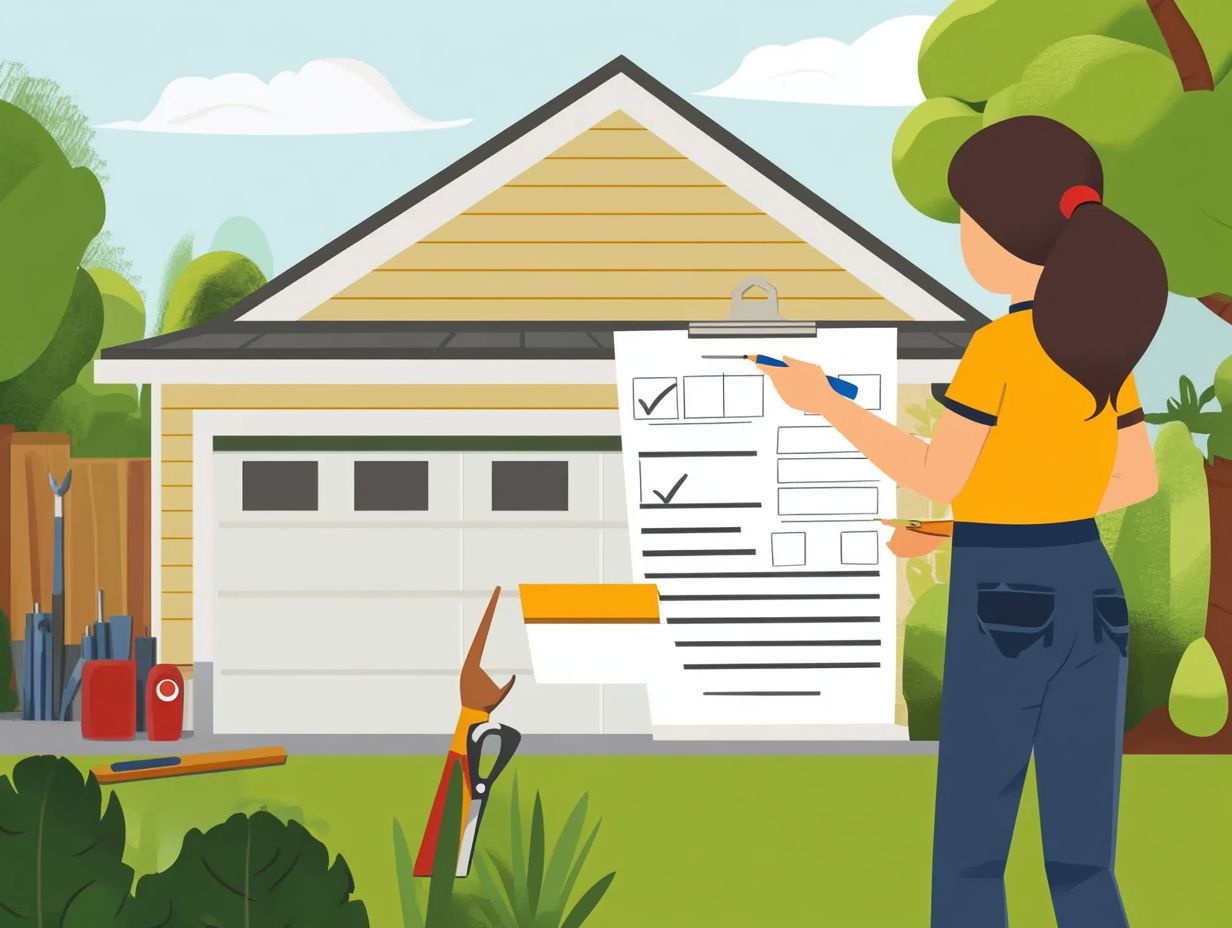
During a home inspection, you should expect a careful look at the property, where the inspector reveals insights about the condition of various systems and structures.
To truly maximize the value of this experience, it s essential for you to engage actively. Come prepared with a list of questions to address any concerns whether it s about the age of the roof or the efficiency of the HVAC system.
Observing the inspector s methods can provide valuable insights; pay attention to the areas where they spend extra time, as these might indicate potential issues.
After the inspection, review the report promptly to identify urgent repairs and both immediate and long-term considerations. This information will be invaluable in guiding your negotiations and decisions moving forward.
Common Issues Found During Home Inspections
Common issues that arise during home inspections can vary from minor repairs to significant concerns that could affect both the property’s value and safety. As a seller, it’s crucial to recognize that elements like the roof, plumbing systems, and structural features often undergo thorough examination during this process. Inspectors will also check for pest infestations.
By familiarizing yourself with these prevalent issues, you can proactively prepare your home, address any concerns, and ultimately boost its curb appeal, making negotiations with buyers much smoother.
Identifying and Addressing Common Problems
Identifying and addressing common issues during a home inspection is essential for both buyers and sellers, as it helps make the sale easier. As a seller, be vigilant about potential red flags that could turn prospective buyers away or diminish your property s value.
For example, sneaky plumbing leaks might go unnoticed, but over time, they can wreak havoc, leading to costly repairs if not tackled promptly. Electrical faults can also pose serious safety risks and demand immediate attention to prevent hazards.
Roof damage think missing shingles or leaks does more than just ruin the home s curb appeal; it can lead to far more significant problems if left unchecked. By taking proactive measures, such as hiring qualified professionals for thorough evaluations and repairs, you can significantly enhance your competitive edge in the market.
Post-Inspection Steps
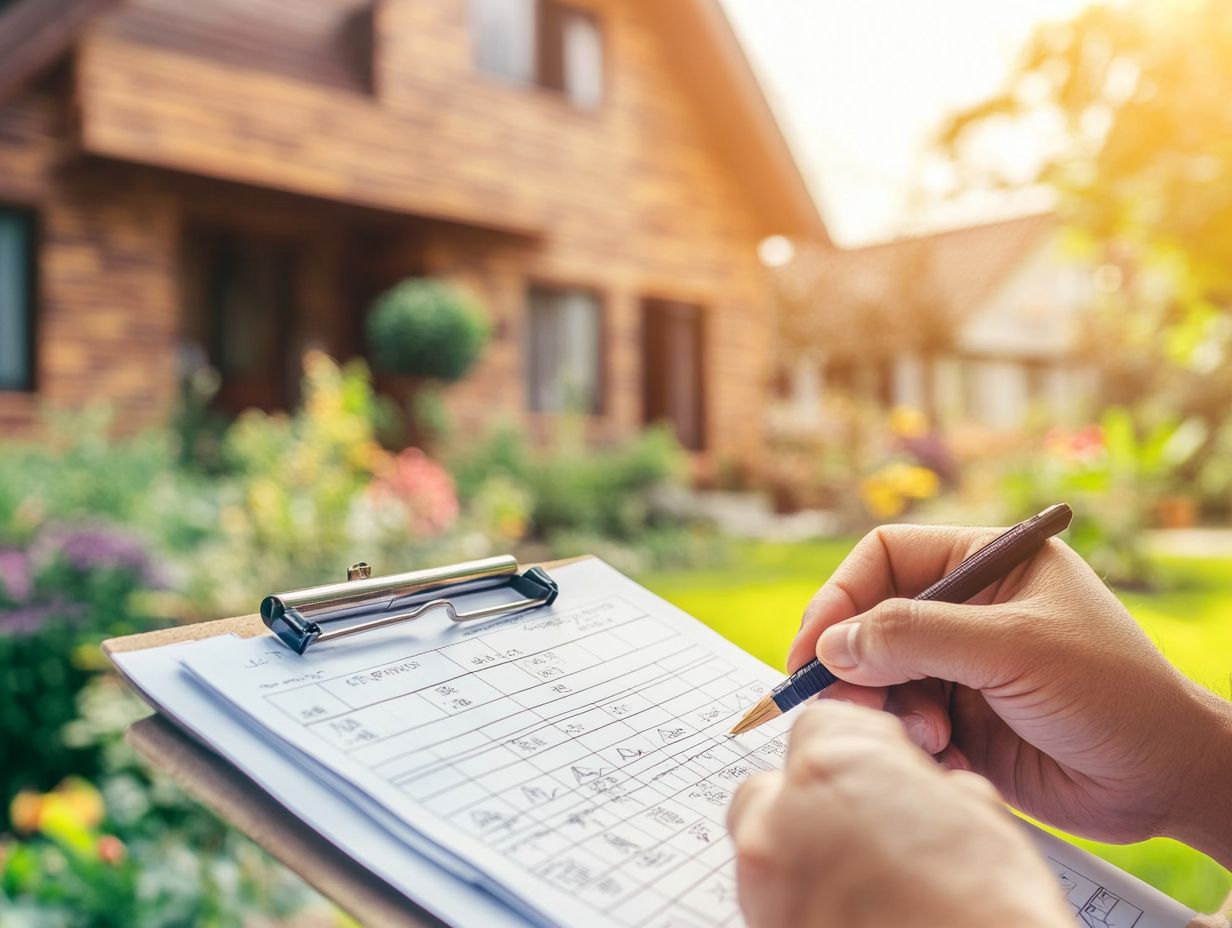
Upon receiving the inspection results, it s essential for both buyers and sellers to navigate the subsequent steps with care, ensuring a fair and transparent negotiation process.
For buyers, the inspection report becomes a vital instrument in addressing any home repairs that may need attention, whether they are major concerns or minor details.
Sellers, conversely, should be ready to discuss the findings candidly; being open about the findings can make negotiations easier and may even enhance the home appraisal process.
Dealing with Inspection Results and Next Steps
Navigating inspection results requires careful examination of the final report. Both buyers and sellers must prioritize home repairs and negotiations.
Clearly outline your findings. Emphasize the most pressing issues that need immediate attention.
This approach enhances transparency and builds trust.
As a seller, be ready to respond honestly. Effective communication helps alleviate concerns and smooths the transaction process.
Fostering a collaborative atmosphere encourages meaningful negotiations. This allows both parties to reach a solution that respects their interests.
Tips for Finding a Reliable Home Inspector
Finding a reliable home inspector is crucial. It safeguards the integrity of the inspection process for both buyers and sellers.
A professional inspector should have a solid reputation and expertise. They should craft comprehensive inspection checklists that cover important parts of the property.
Choosing a qualified inspector provides valuable insights. This promotes transparency and ensures a smoother real estate transaction.
What to Look for in a Home Inspector
When searching for a reliable home inspector, prioritize those with substantial experience. Look for positive feedback from previous clients.
Evaluate specific qualifications and certifications from recognized organizations, such as the American Society of Home Inspectors. These credentials show a commitment to ongoing education.
Check references and read online reviews. A well-rounded inspector with expertise and stellar testimonials enhances your home-buying journey.
Frequently Asked Questions
What is a home inspection and why do I need to prepare for it?
A home inspection thoroughly examines a property’s condition, typically done before a sale. Preparing for it by following tips for a successful home inspection day helps identify and address potential issues before finalizing the sale.
When should I start preparing for a home inspection?
Start preparing as soon as you decide to sell your home. This gives you time to address any issues and increases the chances of a successful sale.
What are some best practices for preparing for a home inspection?
- Declutter and organize the space.
- Make necessary repairs.
- Ensure all major systems (like HVAC and plumbing) are working.
- Provide documentation for recent renovations or repairs.
Should I be present during the home inspection?
While not required, it s recommended to be present. This allows you to ask questions and provide access to certain areas of the property.
What happens if issues are found during the home inspection?
If issues arise, review the report with your real estate agent. Depending on severity, you may need to make repairs or negotiate a lower price.
Is it necessary to hire a professional to help prepare for a home inspection?
While not necessary, hiring a professional can be beneficial. An experienced home inspector or agent can provide valuable insights on what to expect during a home inspection and help you prepare your property effectively.

